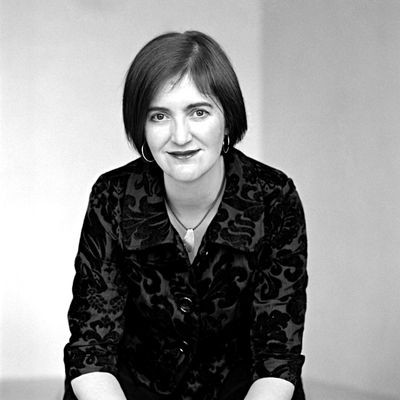
The success of Emma DonoghueÔÇÖs 2010 novel Room ÔÇö about a mother and child living in horrific captivity ÔÇö turned the Irish-Canadian novelist into a star, one whoÔÇÖs burning even brighter following last yearÔÇÖs Oscar-nominated adaptation of that book. So itÔÇÖs fair to say that a great many readers are hungry for her upcoming novel, The Wonder. Well, maybe hungry isnÔÇÖt the right word. The new book spins the strange tale of an 11-year-old Catholic girl, Anna OÔÇÖDonnell, living in a small Irish town in the 1850s who becomes a media sensation when she refuses to eat, claiming sheÔÇÖs surviving on manna from Heaven. A hard-nosed nurse from London is sent to find out whatÔÇÖs really going on. Here, Donoghue explains why children are stronger than they seem.
One of the amazing things about children is how unquestioningly they get on with whatever their peculiar circumstances are. They donÔÇÖt know any better. They donÔÇÖt have a wider context. All those unspoken rules that constitute a taboo, manners, or religion, and children can memorize any set of them. TheyÔÇÖre very, very good at memorizing the rules that go with each situation. TheyÔÇÖre so unlike adults. Of course, they gradually become more like adults, but theyÔÇÖre at their strangest when theyÔÇÖre youngest. They just donÔÇÖt see things the way we do, and often they attempt to apply wonderful clear logic to our very, very messy world, and there we are trying to explain why itÔÇÖs okay to break some rules but not others. We adults sound so inconsistent and hypocritical. TheyÔÇÖre so mentally and spiritually pure, with their consistency and their principles, and weÔÇÖre constantly trying to explain and apologize for a muddy, muddy world to them.
When I was researching Room, I did a lot of thinking about how a child could come to accept a bizarre situation because to him it was normal. I wanted to capture the same quality about this child in an intensely religious peasant family. And the first case of a fasting girl I came across was the story of Sarah Jacob in Wales around the 1860s. What got me started with the Sarah Jacob story in particular was the detail of nurses being sent down to watch her. As soon as the nurses were sent and the media got involved, that kind of tightened the noose around her because sheÔÇÖd been sneaking food. Paying close attention to this girlÔÇÖs fast changed the circumstances. That fascinated me ÔÇö that by watching a situation, you can actually change it and make it worse.
If I try to explain why Anna OÔÇÖDonnell would have done what she did, I draw comparisons with reality TV, or people posting videos of themselves on YouTube doing dares, or, you know, epic fails. You can definitely see the idea of getting famous for starving yourself as another form of anorexia, but you can also compare it with other horrors of popular culture. And one reason I set my story in 19th-century Ireland was that very recently before the moment about which IÔÇÖm writing, Ireland had been laid waste by starvation. The idea of voluntary starvation seemed particularly interesting to me set against that context of dying from involuntary starvation. Starvation used to be a natural part of the human condition. It was the norm. As soon as you get societies where there are enough calories to go around, thereÔÇÖs a particular fascination with those who choose not to partake of all those calories. To us, that seems freakish.
*This article appears in the August 22, 2016 issue of New York Magazine.


